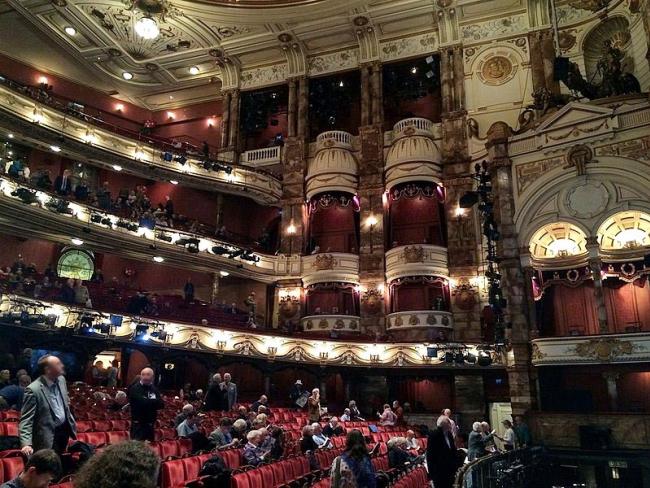Unions in London are waiting to hear whether the English National Opera grant has been saved from redistribution: in short, whether proper national funding will continue.
The government’s attack on public sector funding entailed a budget cut of 29 per cent for the ENO from 2014. For a few months. feuding replaced funding in management circles. Business interests clashed with artistic innovation and three directors resigned, providing a perfect example of how capitalism divides and rules.
The ENO was put into special measures, removed from the Arts Council’s national portfolio of regular funding, told to be “less ambitious”' and “take fewer risks”, and given two years to come up with a remodelled (dumbed down) business plan.
This has meant opening up the vast 2,400 seat Coliseum in St Martin’s Lane, near Trafalgar Square, for food and drink during the day and introducing musicals from the West End (not all with the artistic merit of Sweeney Todd). Ticket prices have been raised to well over £100 for many seats, with the result that the ENO can no longer claim to be a cheap, classless, and youthful alternative to the Royal Opera House.
Brilliant
Its future as a subsidised year-round, award-winning showcase for opera in the English language, including many world premieres, remains in doubt unless full funding is restored. Many jobs are at stake, from its brilliant orchestra and stage management team to its helpful front of house staff. BECTU members make up the majority in all departments, and together with Actors’ Equity and the Musicians’ Union have won the right to attend monthly meetings to be updated on all artistic and financial matters.
At the Royal Philharmonic Society awards ceremony recently there were calls for this “philistine” government to put the “strength of imagination” and the “power of creativity” at the centre of decision making – not only in the arts, but in science, mathematics, industry and political thinking. Laudable sentiments, but we should be more precise: it is capitalism itself which is philistine. So long as we live for the pursuit of profit we will have philistine governments. Why is it so difficult to say so?
• In the run-up to the Autumn Spending Review, to be announced on 25 November, chancellor George Osborne has already warned the Department for Culture, Media and Sport to prepare for cuts to Arts Council funding of either 25 per cent or an even more catastrophic 40 per cent. Local authorities expect the worst and have started selling off their cultural assets, fearing the cuts will mean that they will be unable to meet their statutory community obligations.

